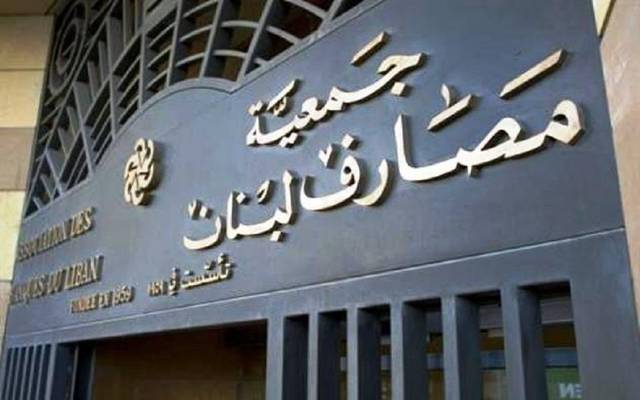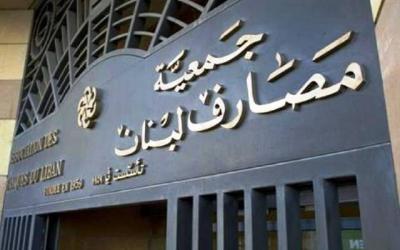A senior official in the financial sector warned of the risk of accumulating monetary and financial repercussions, amplifying the gap in realized losses resulting from a clear duality in the state's approach to the Central Bank’s governance and the banking system. This warning comes at a time when negotiations with the International Monetary Fund are at a critical juncture, expected to culminate in a potential acceleration of a financing agreement based on the government's proposed recovery plan and the enactment of preparatory laws by the Parliament, particularly the capital control law.
The successive data related to the financial sector indicates a stark contradiction in their direction and outcomes. On one hand, the government insists that Central Bank Governor Riad Salameh cover financial needs in dollars to ensure the smooth import of petroleum derivatives and meet necessary expenses, especially for the electricity sector. The government has personally invited him to attend part of the Cabinet meeting next week for this purpose. On the other hand, Salameh is summoned in an ongoing judicial confrontation to investigate charges of "unjust enrichment and money laundering," scheduled for next Thursday.
According to the financial official, the political divergence exceeds the judicial dimension, which realistically represents the tip of the iceberg, reaching the level of Salameh's continued position. There is a public expression of the president's team’s desire to dismiss the governor, yet this approach repeatedly faces rejection from influential political parties. This was openly expressed by Prime Minister Najib Mikati, who raised the slogan "During wartime, officers cannot be changed," noting that this confrontation peaked during the previous government led by Hassan Diab, which had recurring confrontations with Salameh and demanded his dismissal.
Amid this turmoil, the governor continues to perform his duties irrespective of the declared and concealed confrontations. He directly intervened yesterday, despite it being a public holiday, in the new fuel crisis, allowing gasoline importing companies to swap accumulated cash in Lebanese pounds or received from station owners for a fixed rate of 22,200 pounds to the dollar until next Tuesday evening. He also decided that banks could sell Lebanese pounds for dollars or vice versa at the latest rate adopted via the "Sayrafa" platform starting early next week, without setting a limit on the quantity traded. This led to immediate reactions in the exchange market, causing the dollar to drop to around 24,000 pounds after reaching approximately 25,500 pounds in the morning.
The realities on the second front against the banking sector do not differ significantly. Instead, the judicial escalation now threatens stronger reactions from the banking sector or the banks directly affected, as discussions in banking meetings and salons revolve around possibly suing the state in local or foreign courts. It's noted that banks have the right to file a lawsuit in American courts based on contractual agreements due to the state's refusal to pay international debt bond dues since March 2020, resulting in losses to bondholders and damages to depositors in Lebanese banks, as well as the resumption of a two-day warning strike that occurred earlier this week.
This information aligns with hints from former Minister and Chairwoman of the "Mide" Bank, Riya Hassan, who stated that the banking sector is seriously considering legal action against the state and its measures against banks. In a televised interview, she affirmed, "The measures taken against the banking sector today amount to the sector's destruction and are judicial capital control." She questioned, "What is the banks' fault if the state's actions led to the misallocation of depositors' funds? Why is there a presumption of innocence for all the deputies and ministers who misappropriated funds? And to those attacking the banks, have they not noticed the 50 billion dollars wasted on electricity?"
After the banks’ association, through its lawyer Akram Azouri, sent an open letter to the public prosecutor demanding the cessation of a decision by the Judge of Mount Lebanon, Ghada Aoun, preventing six banks from transferring cash abroad, it raised a new alarm, calling for—before it is too late—an end to decisions that reflect a lack of expertise in banking activities and their role in the national economy, completely disregarding the law, and primarily harming depositors who will not receive their rights if banks collapse and the country fails.
The association sarcastically pointed out that "the decision-maker may think that the cash sent by banks abroad goes into the pockets of board members or that they are smuggling it away from depositors, and that banks are not held accountable, do not undergo audits, and are not subject to oversight committees." It classified the decision as part of a series of arbitrary decisions made by Judge Aoun against banks outside her jurisdiction and without any legal basis. It clarified that the foreign currency cash shipped by the six targeted banks accounts for 60 percent of total sector transfers and is intended to fund their accounts abroad, allowing them to meet commitments, especially those arising from opening lines of credit for imports.
Legally, the association’s lawyer emphasized that the decision is described as an overreach because the law does not grant the public prosecutor the authority to limit the freedom of banks and authorized companies in transferring cash or to take measures that infringe upon funds and the freedom of their transfer. This measure impairs the core of banking operations, alters the principle of free movement of funds and trade that Lebanon has upheld since its establishment, and is a matter that exclusively falls within the jurisdiction of the legislative authority. Additionally, this measure will contribute to further depreciation of the pound against the dollar, isolate Lebanese banks from their correspondents, and destroy what remains of confidence in the banking sector.
In response to Lebanese banks' decision to close accounts of citizens or residents in Britain, the British embassy issued a statement yesterday expressing "deep concern" over this decision, labeling it a "unilateral action" targeting account holders based on their residency or British nationality, "appearing to be a method that involves targeting and discrimination."




